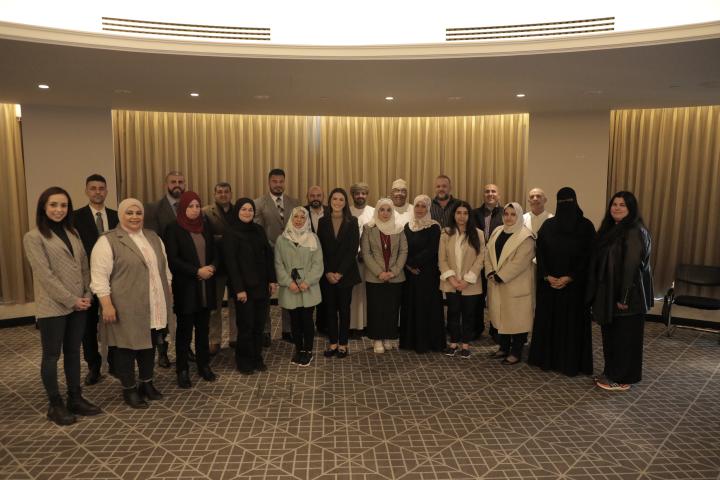Today, the two-day 13th session of the Statistical Committee of ESCWA concluded with a set of recommendations to further move forward national official statistics which play a key role in providing neutral, accurate, and updated data, in order to measure progress in the implementation of the 2030 Agenda for Sustainable Development in the Arab region.
“The frequently used saying ‘what cannot be measured cannot be managed or improved’ has now more than ever a great significance after the world, including Arab States, adopted the 2030 Agenda and its 17 Sustainable Development Goals (SDGs),” said the Acting Executive Secretary of ESCWA, Mr. Mounir Tabet. He stressed the major responsibility of statistics offices in terms of “providing data that enables policymakers to follow up and measure how well this ambitious agenda is implemented at the national level.”
Senior delegates from the national statistical offices in 15 Arab states and representatives of regional and international organizations involved in statistical work joined hands during the last two days to follow up on the statistical work and the previous committee recommendations, and to devise a vision for the upcoming period action plan. Discussions revolved around the role of technology in statistics with a debate over the ethical side of the use and ownership of big data. ESCWA also presented the regional action plan regarding the SDGs.
“The Arab region has begun to make a real progress in harmonizing national statistics with international standards,” Mr. Tabet underscored. “This led to an increase of previously unavailable data production in our countries and an improvement of the current statistical data,” he added.
The Statistics Division team presented on its various work programmes, such as the first manual on Arab Disability Statistics prepared by ESCWA in collaboration with national statistics offices and Washington Group on Disability Statistics. It also showcased the support provided by ESCWA to its member States in the preparation of their Population and Housing Censuses.
Furthermore, ESCWA team presented on the electronic External Trade Country Profiles based on national data, to the e-learning platform on gender statistics, and to the International Comparison Program (ICP) that aims to estimate purchasing power parities (PPPs) that are used to convert gross domestic product (GDP) and its components from national currency denominations into common international currency units at equal price.
The Statistical Committee holds its sessions biennially to follow up on progress achieved by member States in developing their statistical systems; provide them with technical advice; propose training programmes and organize workshops and seminars to enhance their statistical capacity; assist them in standardizing national statistics to ensure their comparability at the regional and international levels; coordinate the exchange of statistical data and information between member States and the United Nations Statistical Commission; and coordinate the statistical programmes of member States, especially in matters relating to surveys and censuses.
For more information:
The event page: https://www.unescwa.org/events/statistical-committee-13th-session (where the outcomes will soon be uploaded)
Photo album: bit.ly/2DJbhjy
*****
For more information:
Nabil Abu-Dargham, Head, ESCWA Communication and Information Unit
+961-70-993-144; email: dargham@un.org
Ms Rania Harb +961-70-008-879; email: harb1@un.org




